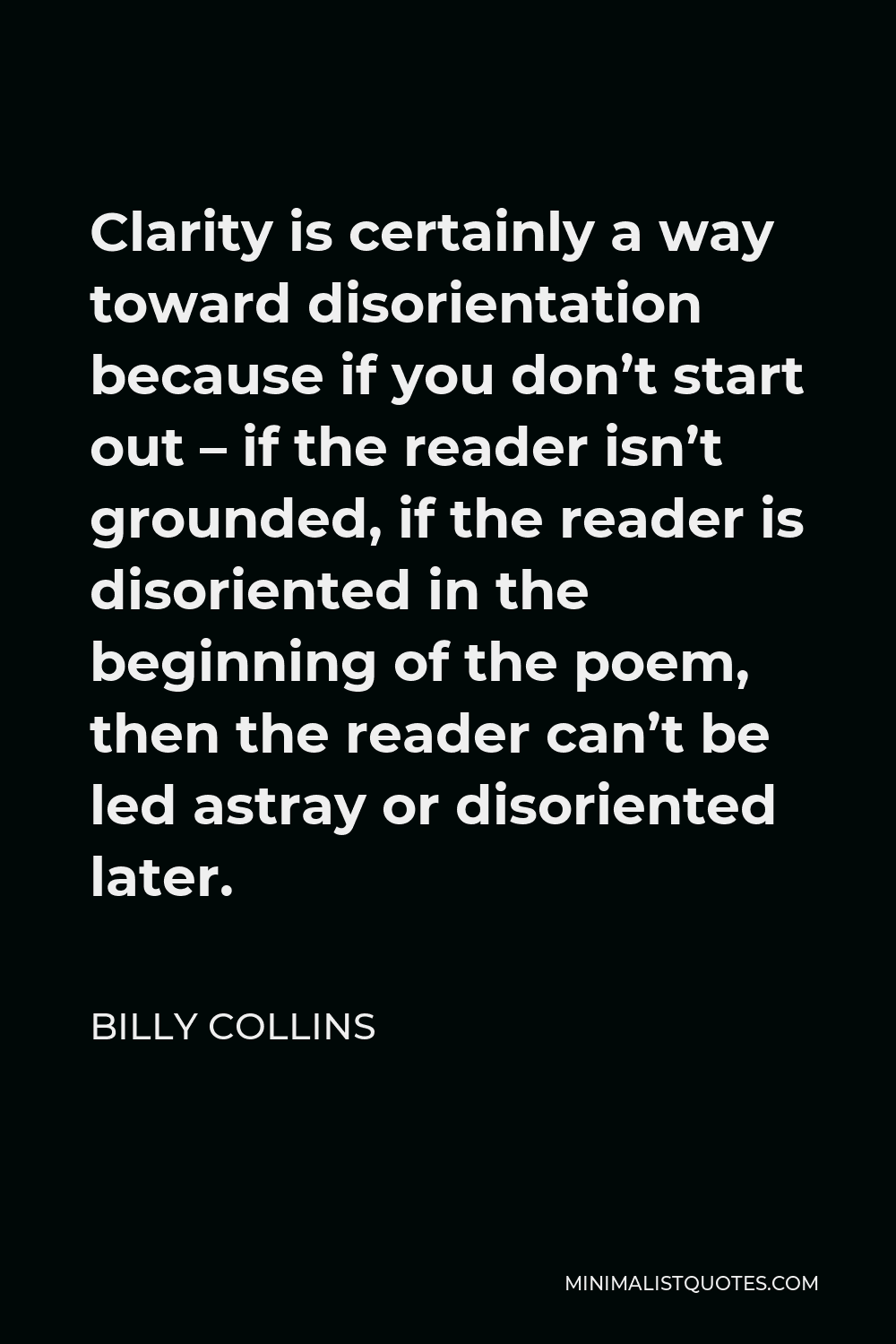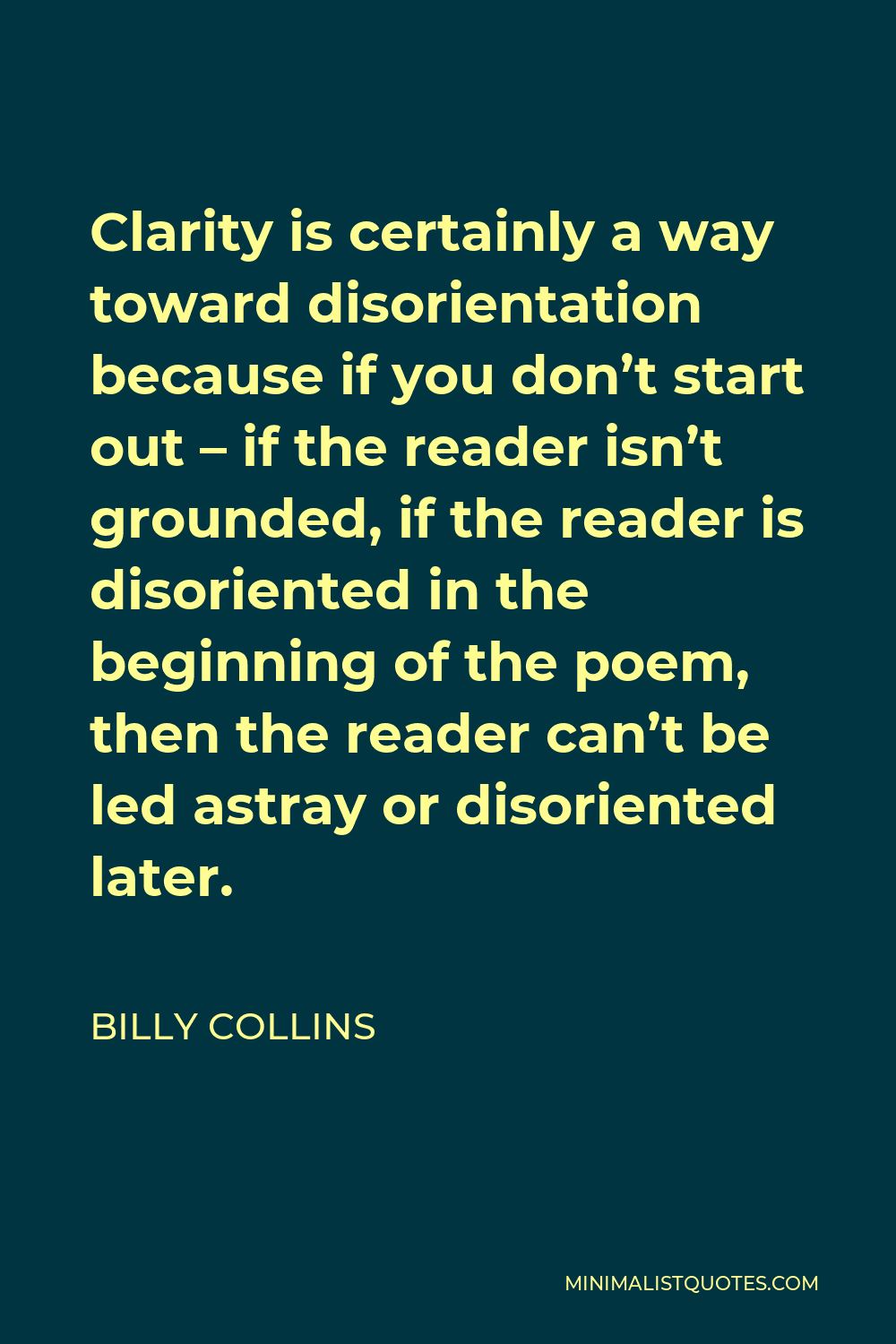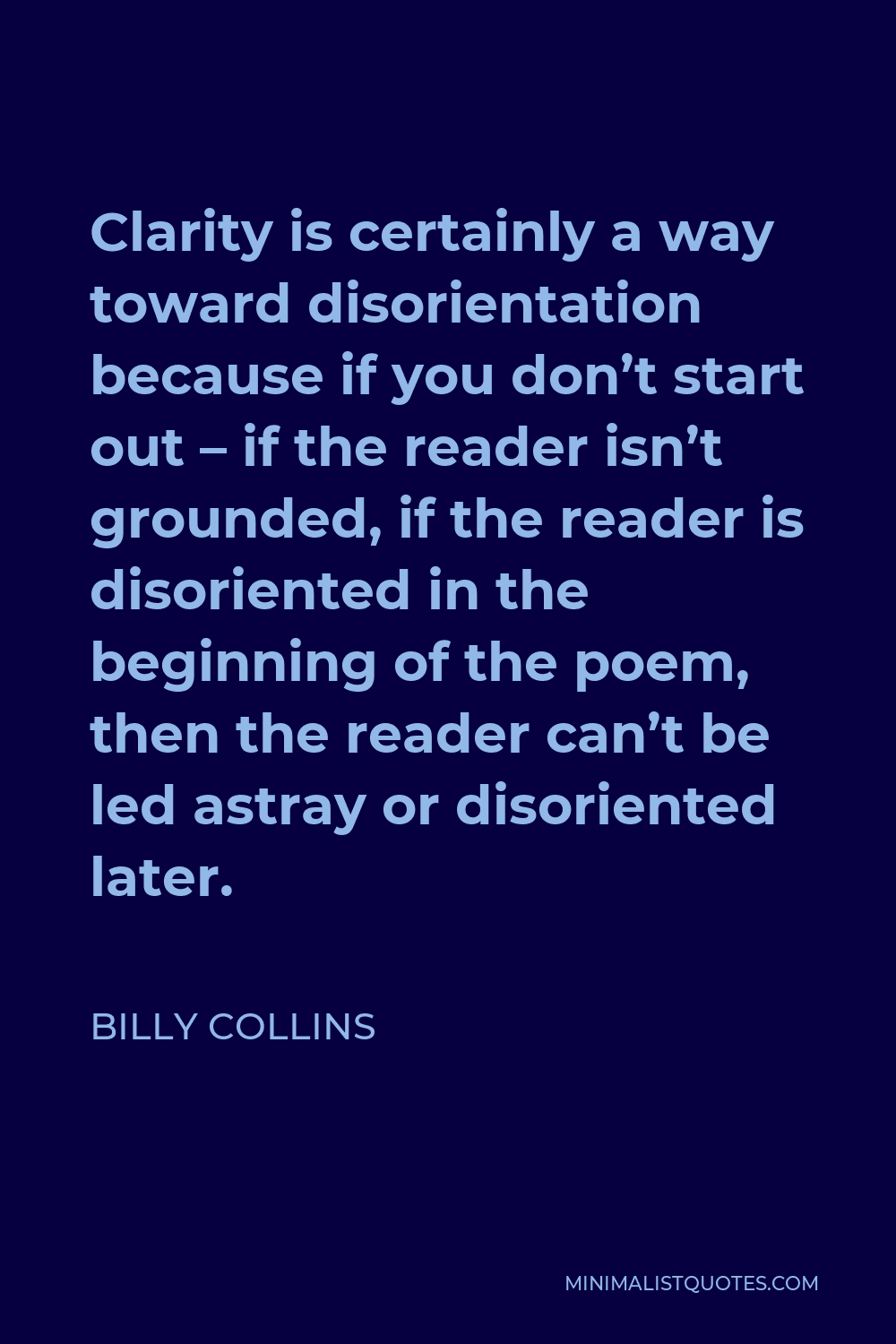No one here likes a wet dog.
BILLY COLLINSClarity is certainly a way toward disorientation because if you don’t start out – if the reader isn’t grounded, if the reader is disoriented in the beginning of the poem, then the reader can’t be led astray or disoriented later.
More Billy Collins Quotes
-






-





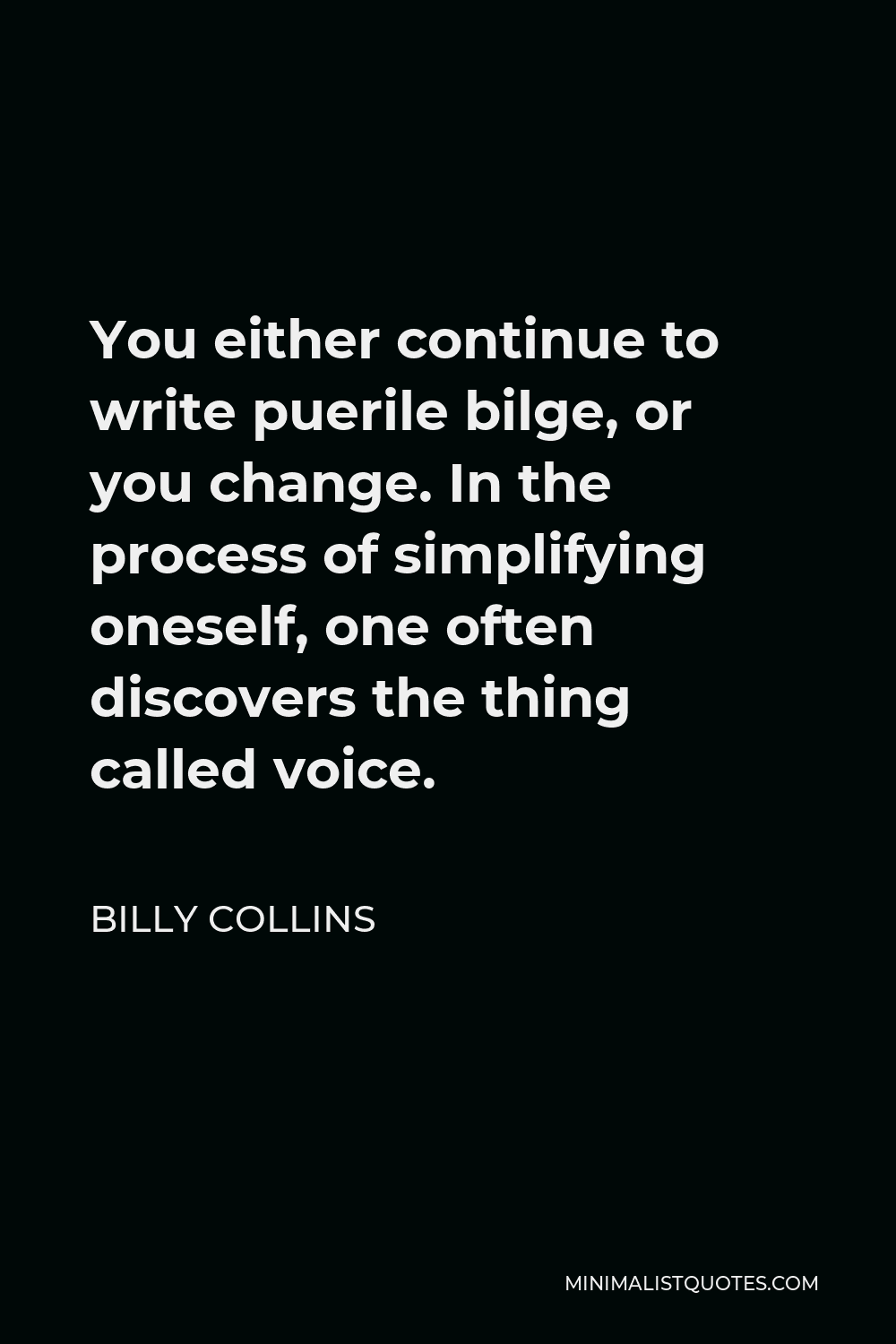
You either continue to write puerile bilge, or you change. In the process of simplifying oneself, one often discovers the thing called voice.
BILLY COLLINS -





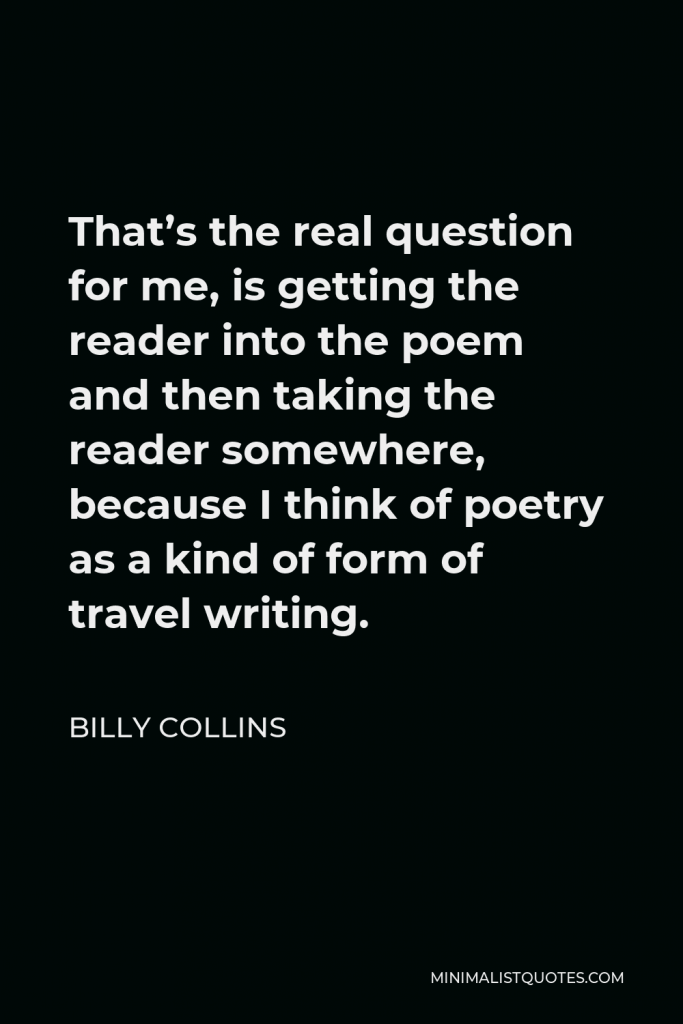

That’s the real question for me, is getting the reader into the poem and then taking the reader somewhere, because I think of poetry as a kind of form of travel writing.
BILLY COLLINS -





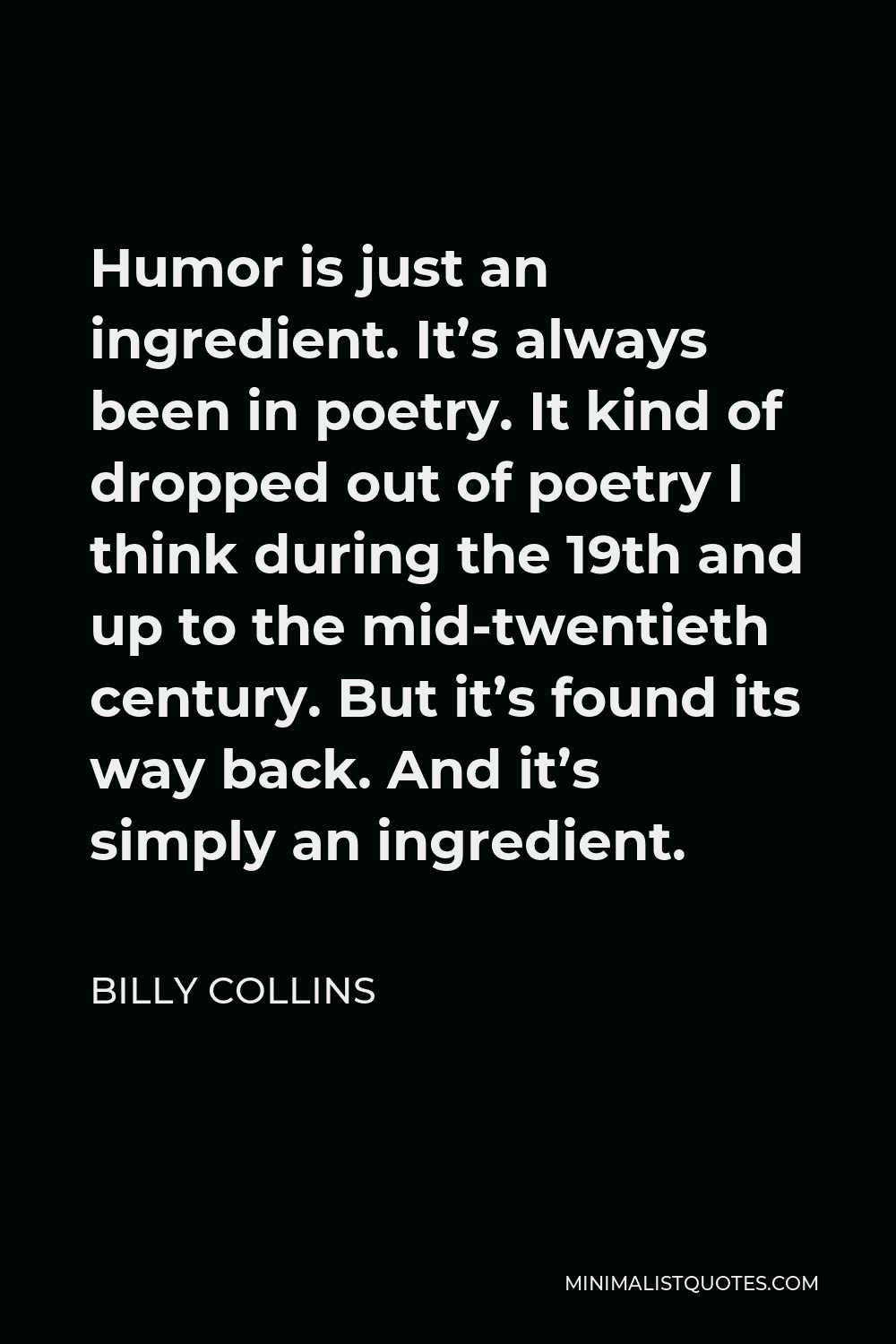
Humor is just an ingredient. It’s always been in poetry. It kind of dropped out of poetry I think during the 19th and up to the mid-twentieth century. But it’s found its way back. And it’s simply an ingredient.
BILLY COLLINS -





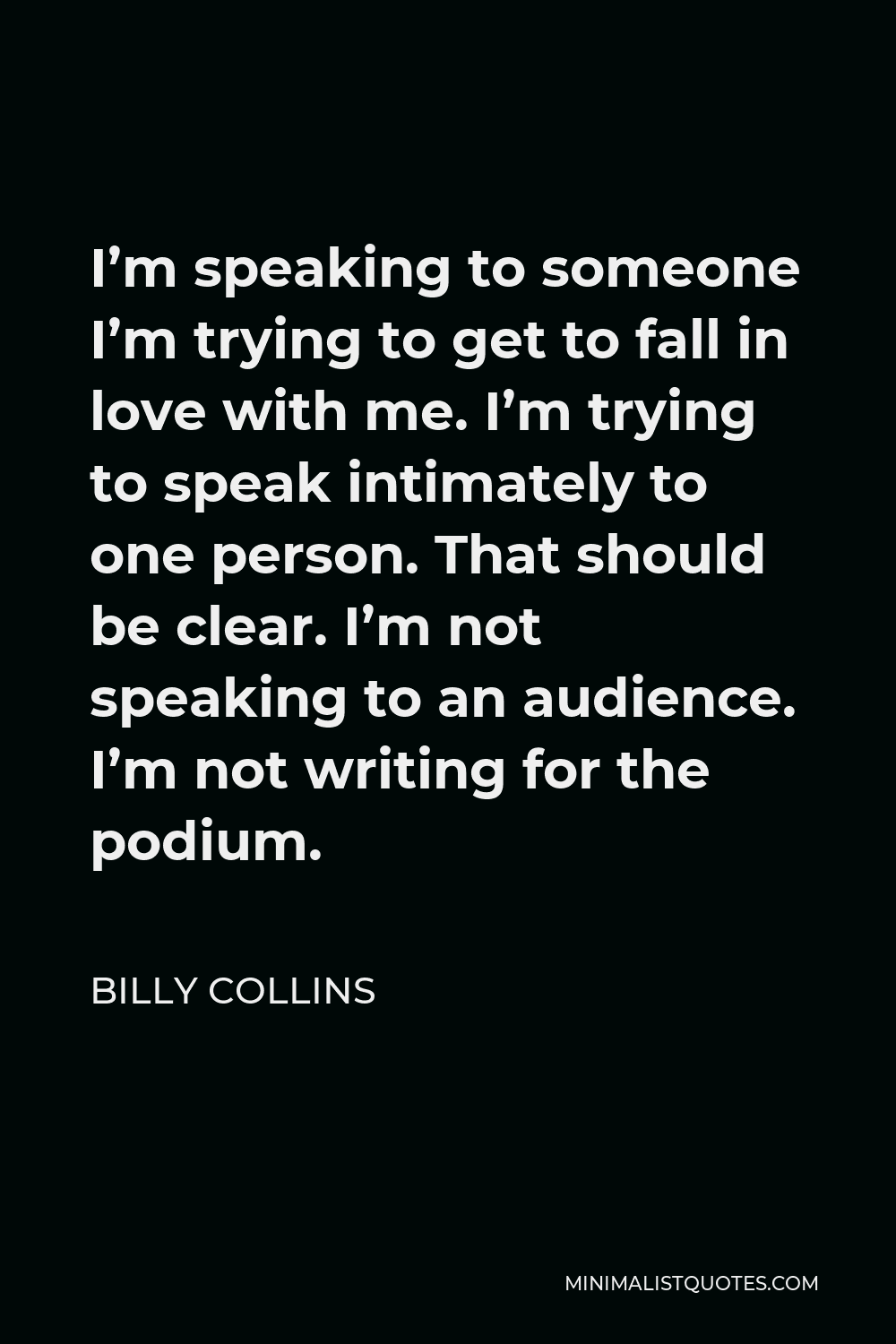
I’m speaking to someone I’m trying to get to fall in love with me. I’m trying to speak intimately to one person. That should be clear. I’m not speaking to an audience. I’m not writing for the podium.
BILLY COLLINS -





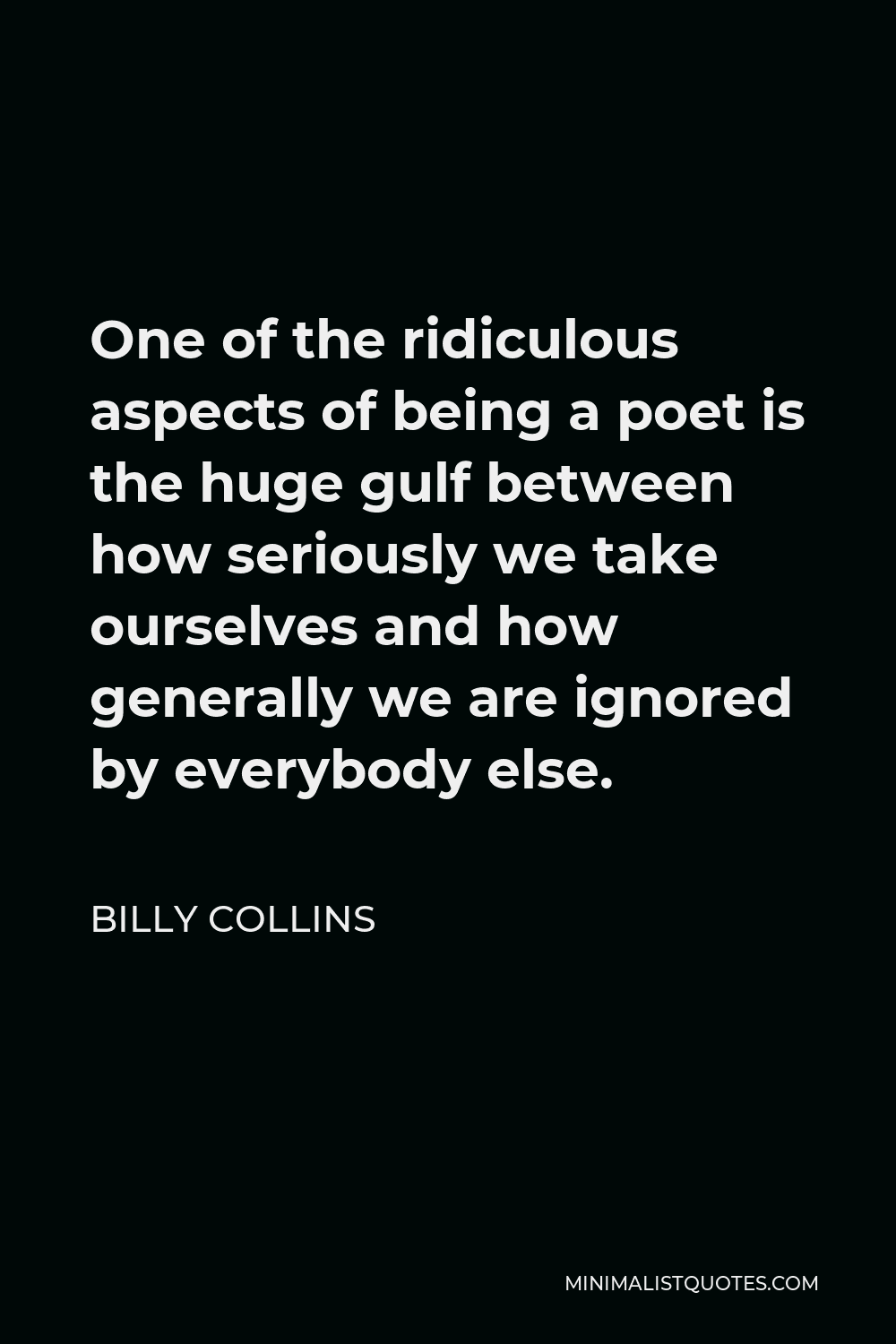
One of the ridiculous aspects of being a poet is the huge gulf between how seriously we take ourselves and how generally we are ignored by everybody else.
BILLY COLLINS -





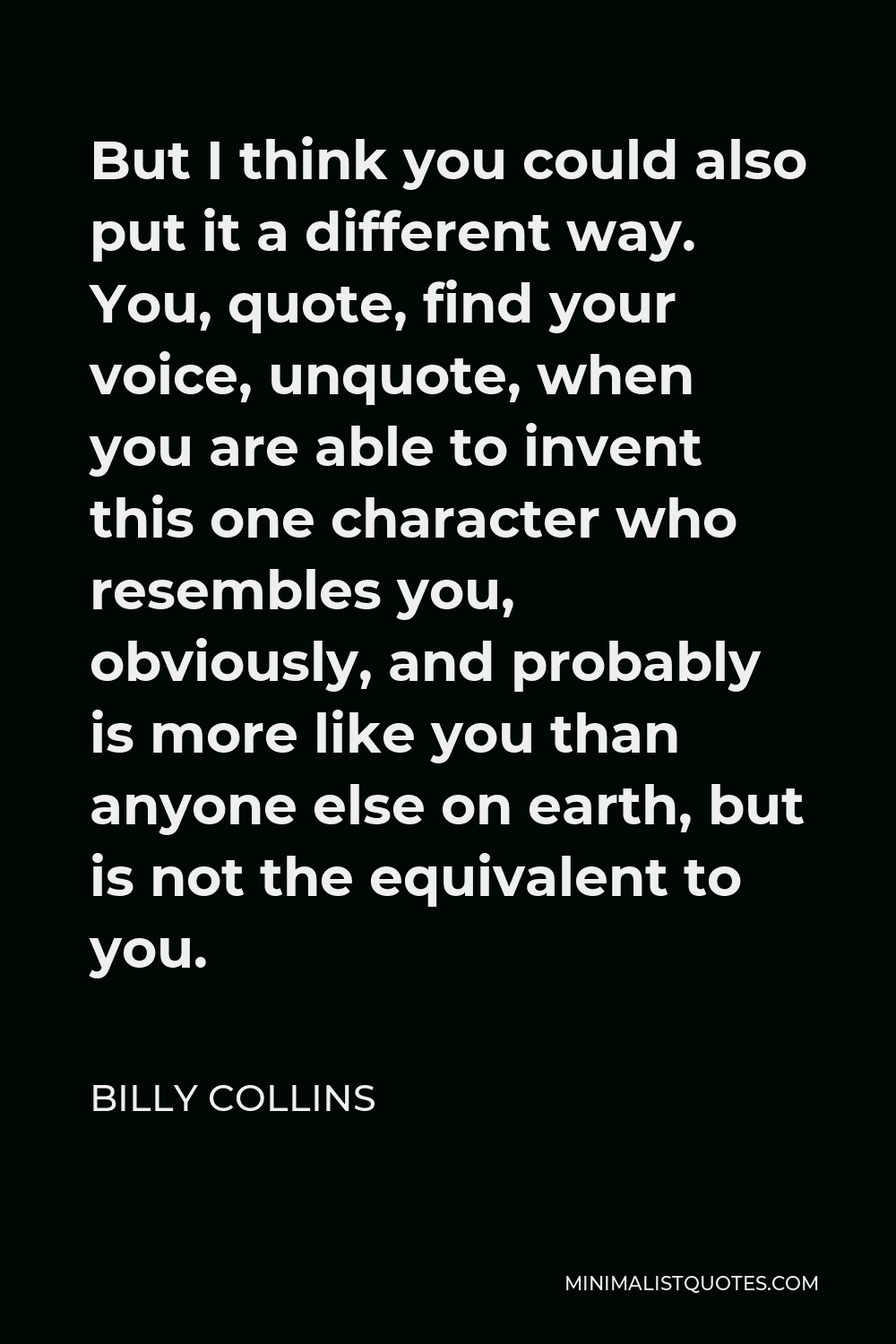
But I think you could also put it a different way. You, quote, find your voice, unquote, when you are able to invent this one character who resembles you, obviously, and probably is more like you than anyone else on earth, but is not the equivalent to you.
BILLY COLLINS -





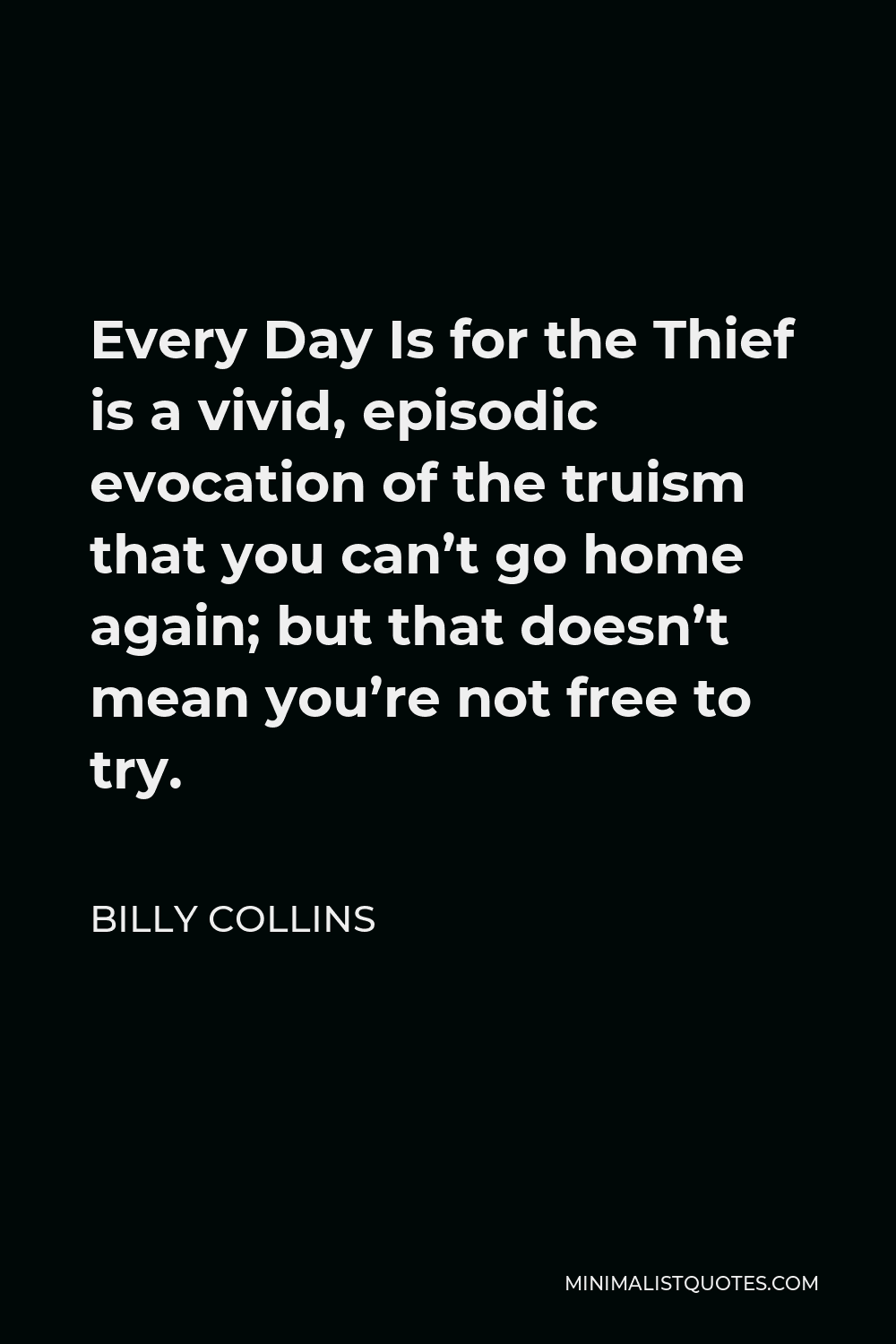
Every Day Is for the Thief is a vivid, episodic evocation of the truism that you can’t go home again; but that doesn’t mean you’re not free to try.
BILLY COLLINS -





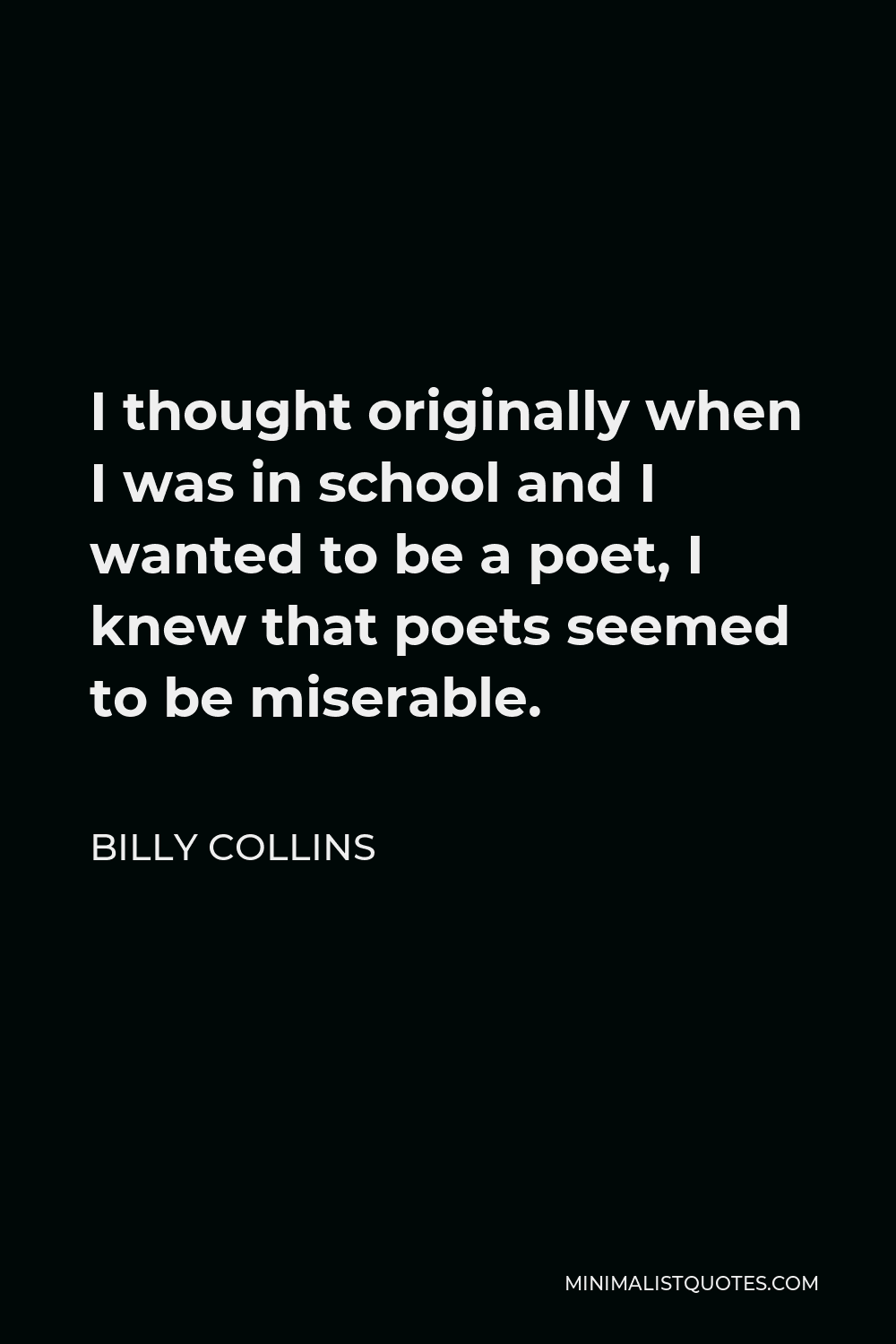
I thought originally when I was in school and I wanted to be a poet, I knew that poets seemed to be miserable.
BILLY COLLINS -






I have one of these early memories where I’m in the back of my parents’ car, a place I loved to spend a lot of time as an only child, not having to fight with venomous siblings over the only toy.
BILLY COLLINS -





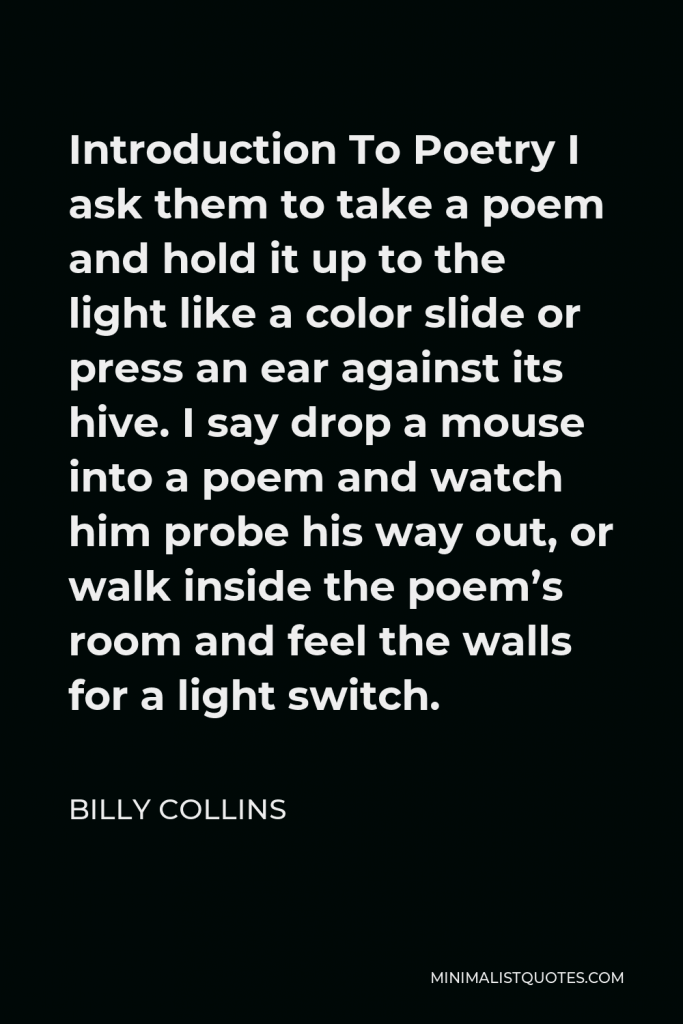

Introduction To Poetry I ask them to take a poem and hold it up to the light like a color slide or press an ear against its hive. I say drop a mouse into a poem and watch him probe his way out, or walk inside the poem’s room and feel the walls for a light switch.
BILLY COLLINS -





![Billy Collins Quote - When you get a poem [in a public place], it happens to you so suddenly that you don’t have time to deploy your anti-poetry deflector shields that were installed in high school.](https://minimalistquotes.com/images/when-you-get-a-poem-in-a-public-place-it-happens-t.jpg)
When you get a poem [in a public place], it happens to you so suddenly that you don’t have time to deploy your anti-poetry deflector shields that were installed in high school.
BILLY COLLINS -





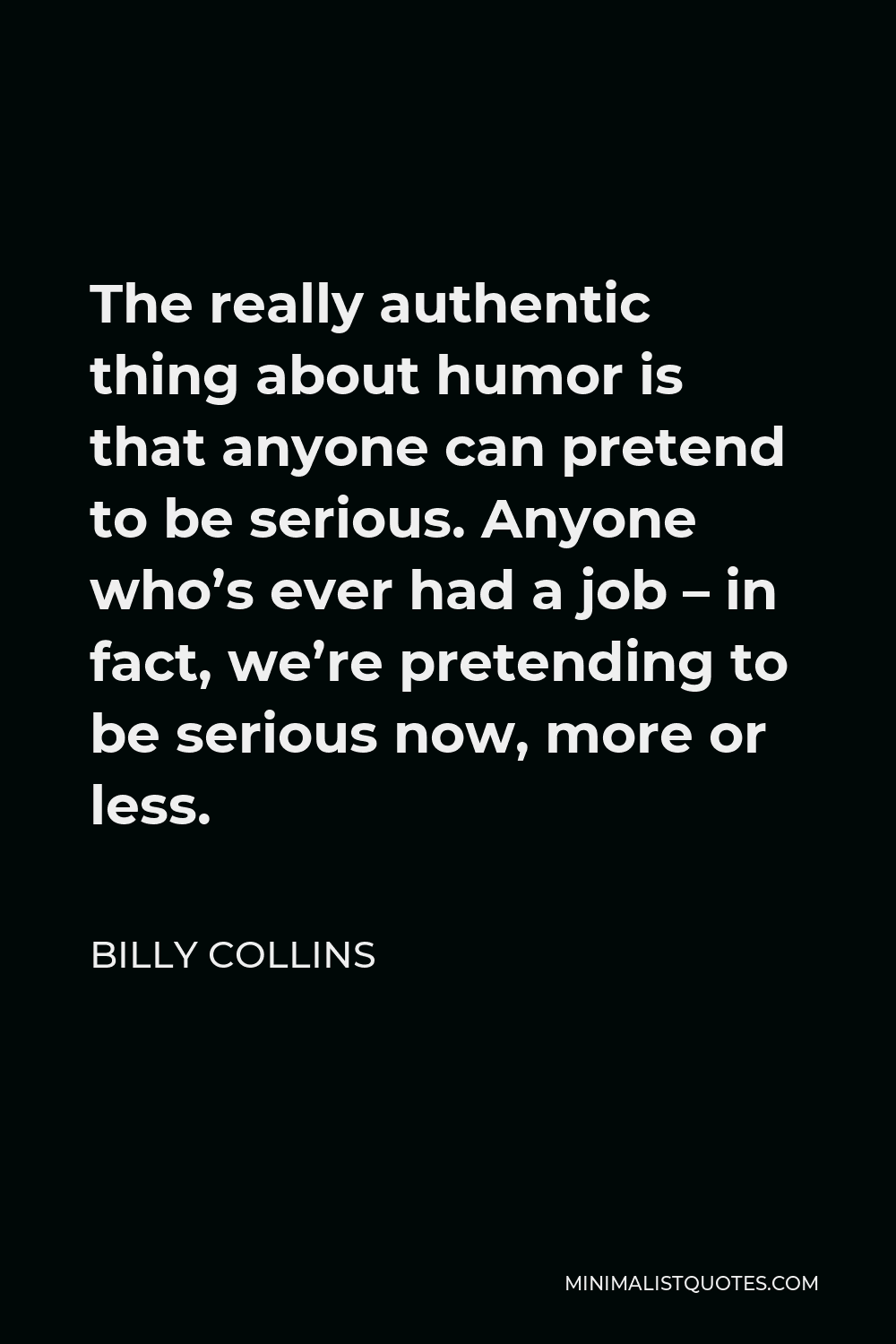
The really authentic thing about humor is that anyone can pretend to be serious. Anyone who’s ever had a job – in fact, we’re pretending to be serious now, more or less.
BILLY COLLINS -





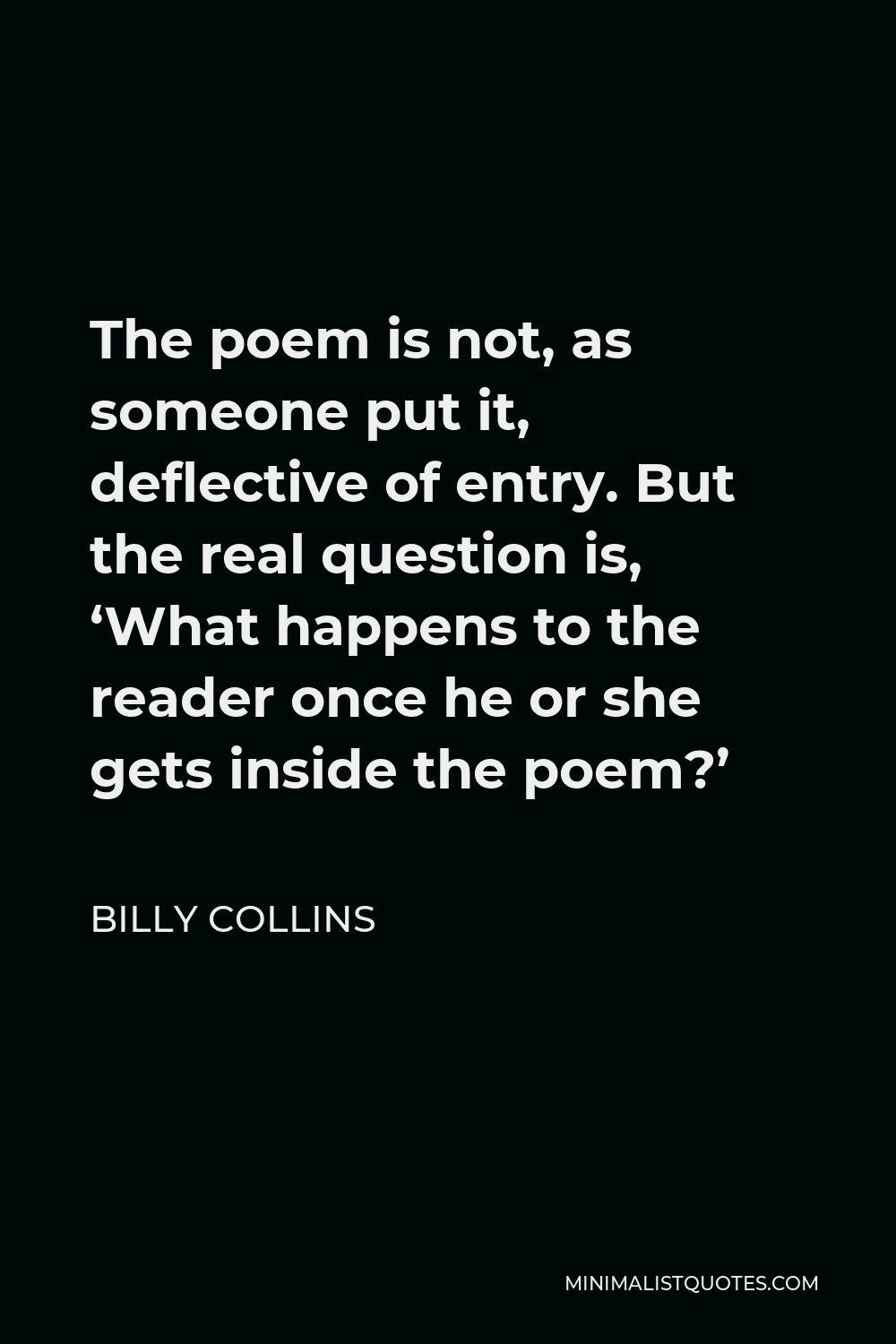
The poem is not, as someone put it, deflective of entry. But the real question is, ‘What happens to the reader once he or she gets inside the poem?’
BILLY COLLINS -





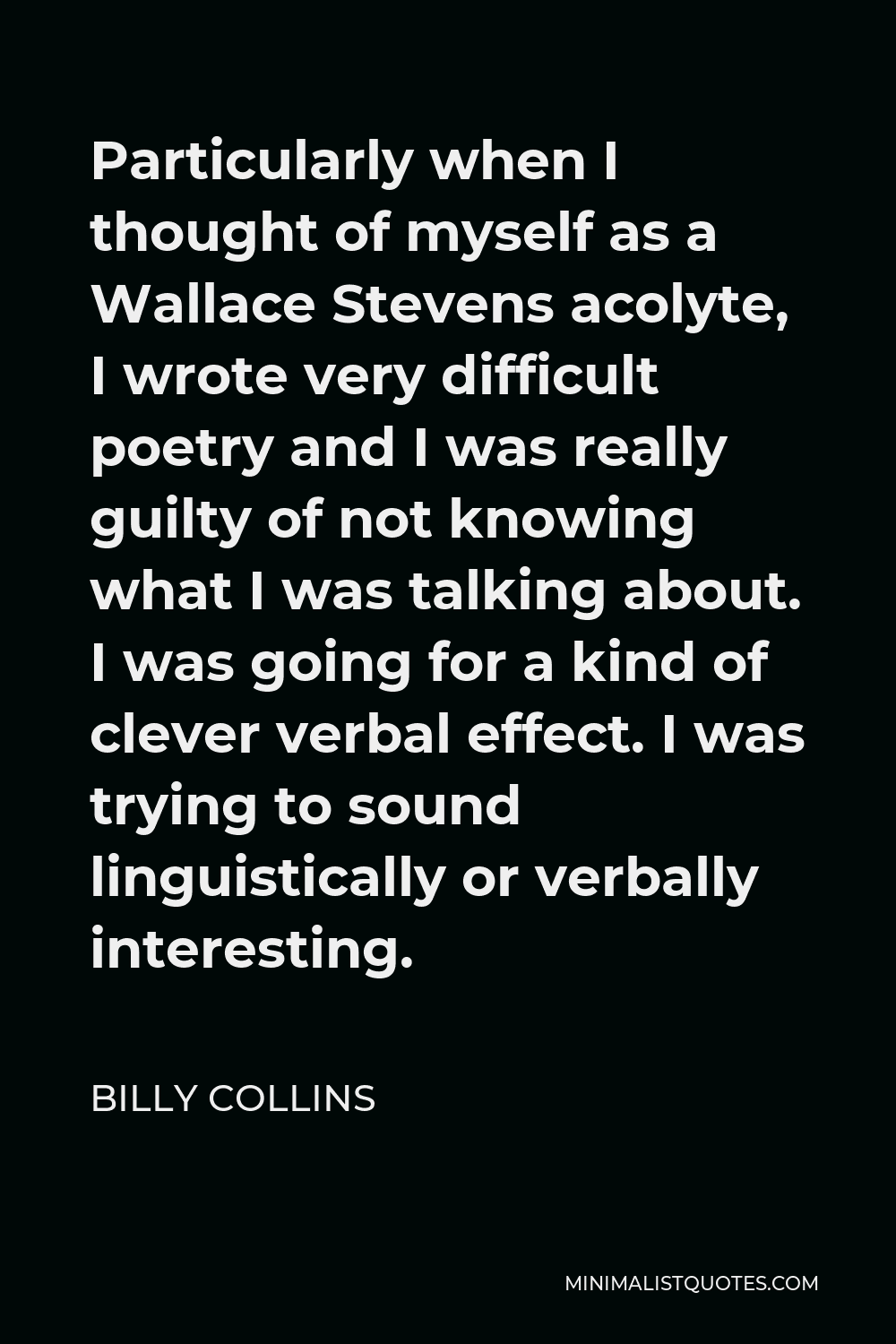
Particularly when I thought of myself as a Wallace Stevens acolyte, I wrote very difficult poetry and I was really guilty of not knowing what I was talking about. I was going for a kind of clever verbal effect. I was trying to sound linguistically or verbally interesting.
BILLY COLLINS -





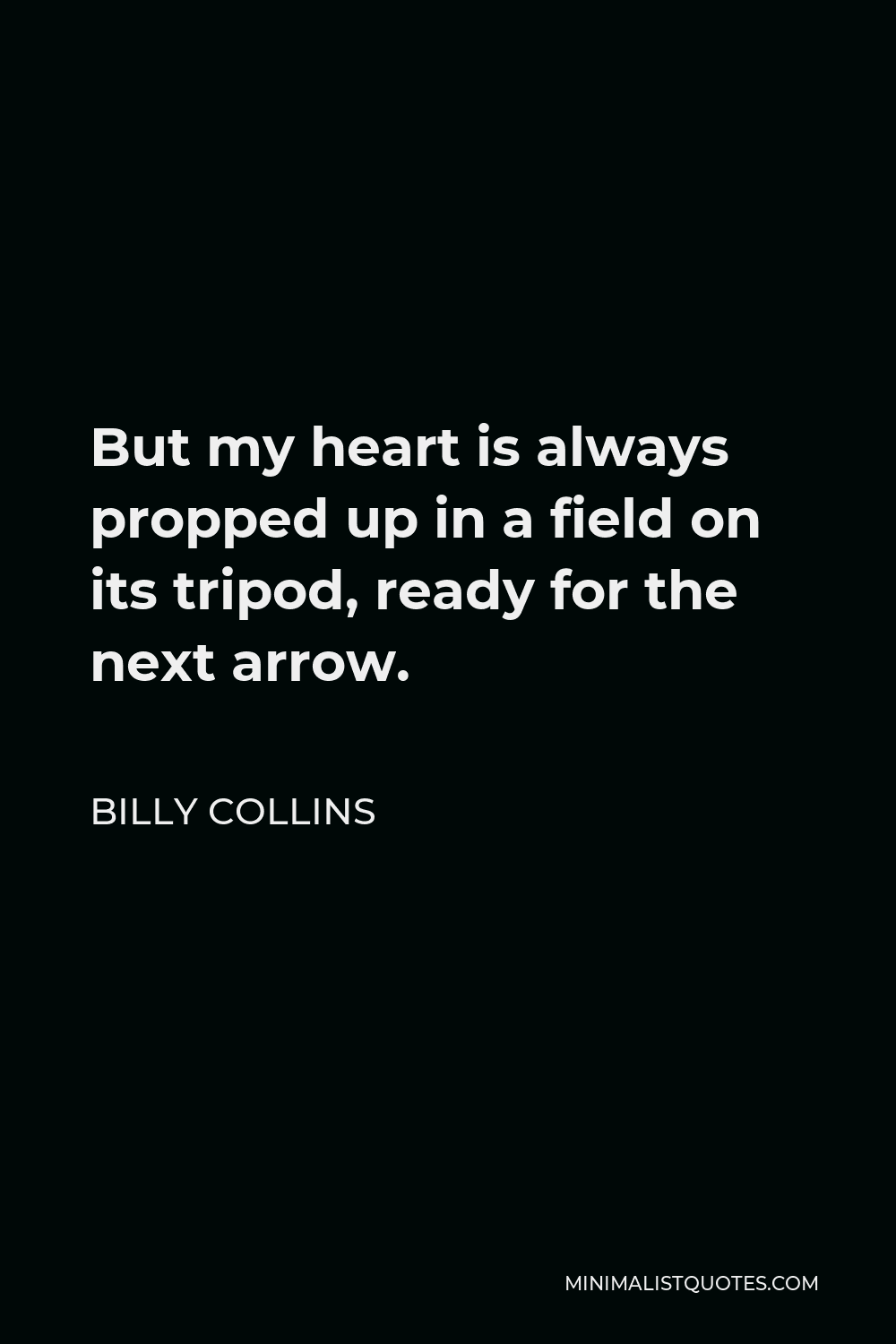
But my heart is always propped up in a field on its tripod, ready for the next arrow.
BILLY COLLINS
